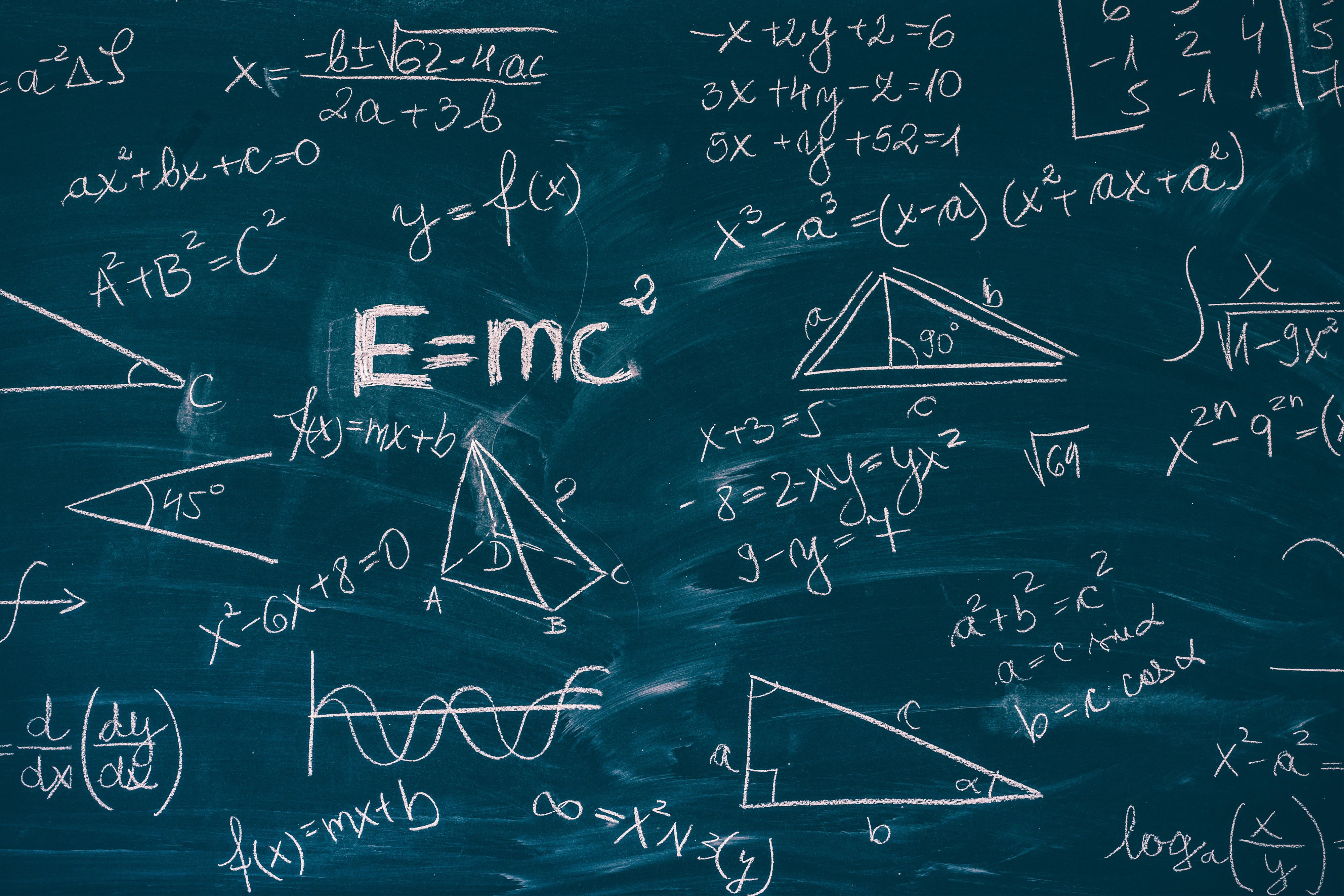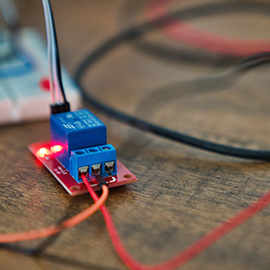Why study mathematics and physics at university? Both subjects are essential for understanding the world around us. Mathematics is the language of science, and physics is the fundamental science that explains how matter behaves.
A degree in maths or physics could prepare you for a career in science, technology, engineering, finance, and many other exciting fields. But more importantly, it will give you a deeper understanding of the world we live in.
So, if you're interested in maths, physics or both read on to find out why you should consider studying maths or physics courses at university and what you can do with a mathematics or physics degree.
Studying Maths at University
Maths is something we’ve all experienced, whether it’s in the classroom, learning times tables, algebra, and fractions or in everyday life, splitting the bill with friends or connecting to the internet. Maths is everywhere. When you study Mathematics at university you study numbers and how they relate to each other, you’ll solve mathematical problems and learn how to analyse data.
Studying Physics at University
Physics is something we’ve experienced too, though perhaps on a more atomical level! To study physics means to study what everything is made up of. Physics is essential for understanding how the world works and is a vast and complex subject. Put simply, it's the study of matter and energy. When you study Physics at university, you’ll cover everything from the smallest particles to the largest structures in the universe.
What Qualifications do you need to study Maths and Physics?
Undergraduate
If you study Mathematics and Physics at Northumbria University, you’ll need 112 UCAS Tariff points from a combination of acceptable Level 3 qualifications which may include: A-level, T Level, BTEC Diplomas/Extended Diplomas, Scottish and Irish Highers, Access to HE Diplomas, or the International Baccalaureate.
Subject requirements include a Grade B in an A Level of Mathematics or recognised equivalents and GCSE Maths and English at minimum grade 4 or C or, or the equivalent. You would also benefit from a general understanding of the subject through similar STEM subjects including Computer Science, Engineering and Physics. Applicants may also benefit from completing a further mathematics A level, though for many universities this isn’t a requirement. If you have a qualification from outside of the UK or have equivalent qualifications please check the guidelines and requirements for your chosen course.
Be sure to check the course page for your specific degree to check for specific requirements.
Postgraduate
Usually, to study for a Masters in Mathematics degree or a Masters in Physics degree you’ll need a strong undergraduate degree in a relevant field. That might be a Mathematics or Physics undergraduate degree, but if you studied other STEM subjects there may be room to cross over into a Mathematics MSc.
If you study a course in the Mathematics and Physics department at Northumbria University achieving a minimum of a 2:2 honours degree in Mathematics or Physics. If you’ve obtained an undergraduate degree in another STEM subject like Statistics or Engineering, you may also be a good candidate for this Masters. It’s worth checking the specifics of the Masters in the relevant degree you’re interested in for specific requirements. If you have a qualification from outside of the UK or have equivalent qualifications please check the guidelines and requirements for your chosen course.
Be sure to check the course page for your specific degree to check for specific requirements.
Key benefits of studying Maths and Physics
1. Skills in demand
A good knowledge of maths and physics can improve your employment prospects whether you pursue a career directly in those fields or not. As our world diversifies and becomes more driven by technology a demand for Mathematicians and Physicists grows. Logic and Mathematical skills like analytics, pattern recognition, research skills, problem solving, and communication can be applied to just about any career goal.
2. Understanding the universe
When you choose to study maths at university or study a physics course, you’ll gain a unique perspective on our universe. Depending on your specialism and area of interest that understanding could be as granular as the smallest particles in the universe, or it could be as vast as the largest structures in the universe or the elements that define our very existence.
3. You’ll never stop learning
There aren’t many fields of study that are making discoveries and developments that impact the fundamentals of that subject. In 2019 we saw the first images of a Black Hole, we drive automated cars, have computers on our wrists and mathematicians in 2022 are solving mathematical problems that have been in question for centuries! This means that you won’t be bored when studying this subject. It’s an exciting time when theories that were once held in high regard are challenged and replaced with sophisticated, dynamic, and transformative discoveries.
What course options are there to study Maths and Physics?
Types of Maths degree
If you want to study Maths at University, it’s important to know the types of mathematics courses out there. Many universities offer maths courses that cover a single mathematical subject:
- Pure Mathematics
- Applied Mathematics
- Statistics
- Mathematics
But you’ll find there are a lot of options to study a mathematics course alongside a complementary subject. Popular combinations include:
- Mathematics and Statistics
- Mathematics and Computing Science
- Mathematics and Economics
- Mathematics and Physics
Undergraduate mathematics courses usually lead to a BSc qualification. For Masters in Mathematics degrees, you have a few more options. Masters in maths degree graduate qualifications include MSc and MA.
You’ll also see some maths courses offering an MMATH qualification. This MMath Mathematics degree is a challenging integrated Masters programme. It takes at least five years to complete and is designed for those who want to study in more depth; or who might want to use advanced mathematics in their careers or research.
Some universities offer HND, HNC, and Foundation Mathematics courses, though these aren’t that common.
Types of Physics Degree
The types of degrees available for Physics follow a similar pattern. When you study Physics at University, you’ll either study a straight physics course like Physics BSc or Physical Sciences BSc or a theoretical Physics degree like Theoretical Physics BSc.
The difference between straight physics courses and theoretical physics courses lies in the weighting of mathematical content in the degree. Like Mathematics, there are plenty of opportunities to combine a physics course with another complementary subject. Popular subject combinations or specialisms include:
- Astrophysics
- Physics and Mathematics
- Quantum Physics
- Computer science and Physics
- Chemical Physics
- Geology and Physics
Most undergraduate physics degrees lead to a BA or BSc qualification. A Masters in physics degree qualification is usually MSci. An MPhys qualification is another qualification option for Masters in Physics degrees. This integrated Masters degree is offered by several universities.
Why choose Northumbria University for Maths and Physics?
If you study Mathematics at Northumbria or Physics at Northumbria you’ll be based in the Mathematics, Physics and Electrical Engineering department. The department boldly explores how the subjects drive some of the most cutting-edge advancements in our present and future worlds.
Facilities
Northumbria University makes sure you have all the resources you need to realise your potential, as well as access to study spaces, libraries, and online learning resources. You’ll also access the industry standards in labs and practical maths and physics facilities like:
- Optical Communications Lab
- Smart Materials and Surfaces Lab
- Electrical and Electronics Lab
- Undergraduate Physics Lab
- Physics Projects LabRapid Prototyping Room
- New and Renewable Energy Lab
- Microwave Technology Lab
Discover more of the Maths and Physics facilities at Northumbria.
Career focussed
Maths courses and Physics courses at Northumbria University emphasise supporting you in the future you want. Northumbria puts a focus on the practical applications of your degree and works with industry partners to define what skills employers value.
This means that Maths and Physics at Northumbria focuses on transferable skills such as creative thinking, communication, analysis, and digital literacy. But it also develops technical skills valued by industry partners. For Physics and Maths students such as estimation, quantitative modelling, and statistical analysis.
Northumbria University Maths and Physics graduates have found employment in the financial, retail, manufacturing and teaching sectors, including Intel, NHS, the financial industry (including Accenture, Ernst & Young, Procter & Gamble), UK Government’s Department for Work and Pensions, Government Statistical Service, BAE Systems, GlaxoSmithKline and Rolls-Royce, as well as advancing to Masters in Mathematics Degrees, Masters in Physics degrees and complimentary study.
Research Excellence
Maths and Physics research at Northumbria University is split into core research groups: Astrophysics, Mathematics, Statistics, Renewable Energy, Electrical Engineering, Communications and Materials Physics. You’ll learn in a research-rich environment where you’ll be gradually introduced to the advanced research methods and processes needed for the construction of new knowledge in Mathematics and Physics. Be impressed by the world-changing research that drives Maths and Physics at Northumbria University.
Placements, Study Opportunities and FAQs
Industry Placements
Industry placements are valuable as part of any degree but for those who study mathematics and physics, it could give you the practical application you need to land your dream career. Being able to apply your mathematical skills, research, logical and critical thinking skills to an
industry setting can be transformational both for your career goals and the goals of your chosen business. Those who choose to study physics at university or mathematics at university should consider placements or work experience in the sectors that interest them most. Look at the research being conducted at your chosen university. This will speak to the potential networks that may be available to you for placement opportunities at your university.
Study abroad opportunities
Studying abroad opens you up to different cultures, different ways of learning and different experiences. But, because mathematics and physics adhere to the same principles all over the world, they can function as a universal language. A phrase or formula has the same meaning, regardless of the spoken language that accompanies it.
This can lead to developments in communication even when other communication barriers exist. This unique aspect of maths and physics should be embraced by those who study it.
What can I do with my Maths and Physics degree?
When you study a mathematics or physics degree, you gain valuable skills that are valued by a diverse range of employers and industries. You can do so much with a physics degree or a maths degree. It really depends on where you see yourself and the career goals you have.
Most industries and most careers require employees who are skilled in:
- Communication
- Logic
- Critical thinking
- Research
- Decision making
Having a strong grasp of numeracy and general mathematical principles is an impressive accomplishment that is valued by employers in almost all industries.
What jobs can I do with a Maths and Physics degree?
Popular job titles for graduates in mathematics and physics include:
- Data analyst
- Data scientist
- Engineer
- Researcher
- Game designer
- Insurance underwriter
- Machine learning engineer
- Meteorologist
- Astronomer
- Accountant
- Statistician
- Teacher or Lecturer
- Financial manager
But there are plenty of employers in every sector that will see your skills as a maths and physics graduate as an asset.
Please Note
All content is accurate as of the time of writing, the information in this guide is subject to change and will be updated as required to reflect this.















